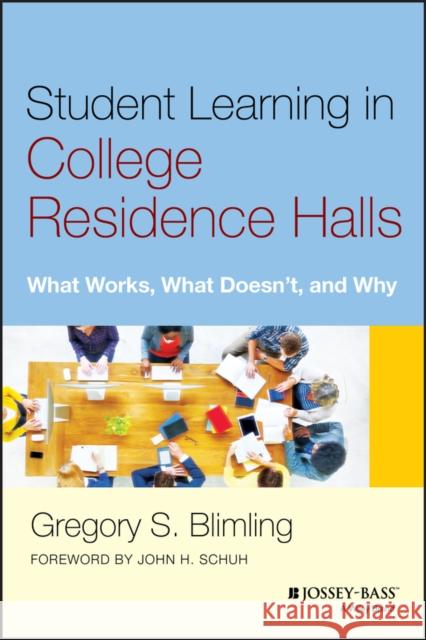Student Learning in College Residence Halls: What Works, What Doesn't, and Why » książka
Student Learning in College Residence Halls: What Works, What Doesn't, and Why
ISBN-13: 9781118551608 / Angielski / Twarda / 2015 / 416 str.
Add value to the student experience with purposeful residential programs Grounded in current research and practical experience, Student Learning in College Residence Halls: What Works, What Doesn't, and Why shows how to structure the peer environment in residence halls to advance student learning. Focusing on the application of student learning principles, the book examines how neurobiological and psychosocial development influences how students learn in residence halls. The book is filled with examples, useful strategies, practical advice, and best practices for building community and shaping residential environments that produce measureable learning outcomes. Readers will find models for a curriculum-based approach to programming and for developing student staff competencies, as well as an analysis of what types of residential experiences influence student learning. An examination of how to assess student learning in residence halls and of the challenges residence halls face provide readers with insight into how to strategically plan for the future of residence halls as learning centers. The lack of recent literature on student learning in college residence halls belies the changes that have taken place. More traditional-age students are enrolled in college than ever before, and universities are building more residence halls to meet the increased demand for student housing. This book addresses these developments, reviews contemporary research, and provides up-to-date advice for creating residence hall environments that achieve educationally purposeful outcomes.
- Discover which educational benefits are associated with living in residence halls
- Learn how residential environments influence student behavior
- Create residence hall environments that produce measureable learning outcomes
- Monitor effectiveness with a process of systematic assessment











